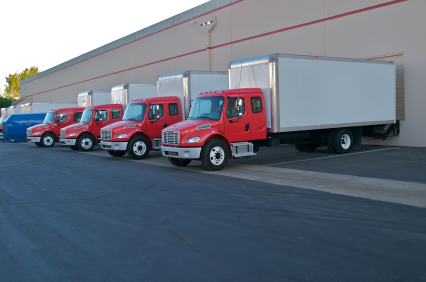
When I was in business, I once owned of a small manufacturing company. Most of my time was spent in an office or on the road somewhere, but when I had time I loved to hang out in the factory, especially when delivery trucks dropped off merchandise. For me it meant that we were receiving materials, we could make something, and then — eventually — we could bill someone.
Of course, collecting from the bill was another story, but anyone who has ever owned a business and had to make a payroll knows how exciting it is to develop cash flow.
As much as I loved the opportunity, the truck’s delivery was always bittersweet though.
We could now build a product…
But we also had to pay for the materials…
Sometimes (okay…truthfully all the time) that would stretch our cash flow until we could ship a product, send a bill, and collect some cash.
It was through watching that process a leadership principle came to me.
Delivery Truck Principle of Leadership.
This principle points to a tension which exists in all leadership decisions. The return on investment for any opportunity doesn’t come until after the investment has been made. Sometimes that’s a long time following the initial investment.
We see that in many areas of our life. Some examples from society that come to mind:
- New people come to a church and participate in programs, but they don’t immediately start contributing.
- New houses are built in a community but it takes years to recover money invested in the roads, schools and emergency services to add them.
- Hiring new employees may eliminate some stress, but it may be months before they understand the culture and their role and are able to contribute.
- Gaining new clients for a business takes upfront marketing money, but becoming a loyal customer may take months or years — if ever.
- Developing a new program at your church may reach more people, but may pull resources from other programs.
You could add many more examples to this random list.
The principle I’m making is simple…
With every opportunity comes a cost.
The leader must discern when the cost exceeds the return, stretches the organization beyond its current capacity, or the opportunity’s costs simply aren’t received well within the organization.
Many leaders only see the potential in the opportunity, but fail to consider the costs associated. When a wonderful-sounding idea is thrown out in a creative meeting, I can get excited with everyone, but I’m also reminded that someone will have to develop a plan and do the work.
There have been so many opportunities or ideas I have left behind because I didn’t sense our team was willing or able to assume the costs associated. (There is also a cost associated with not taking an opportunity, but I spend far more of my time on this blog addressing those types of costs.)
Deciding to grow an organization is an admirable goal. I highly encourage it. Helping leaders grow and develop will continue to be a major focus of this blog.
My point in this post is simply to remind you of this:
With every opportunity to grow, someone must be willing to count and eventually pay the costs associated with that growth.
The wise leader considers those costs along with the excitement of the opportunity.
If you wish to continue this thought process answer this question:
Is your organization better at:
Coming up with ideas
Counting the costs
Completing a plan
While this may be the subject of another post, in my experience, organizations and/or individuals tend to excel in one of these three. Understanding the importance of each of them is a key to success.
Would anyone say their organization is excellent at all three?






 Logging you in...
Logging you in...
 Loading IntenseDebate Comments...
Loading IntenseDebate Comments...
Appreciate the fresh layout. I really liked this article. Credit for this impressive article.
Ron, This post really hit home. As educators, we often don’t get to see the fruit of our labor. There are of course those students who follow the expected path through the educational process, but the ones that keep us up at night as we pray for them and their families as well as the wisdom to best serve their needs often display the rewards of the investment after they have left our classrooms. I felt a strong connection to the Delivery Truck Principle of Leadership analogy. Thank you for another fabulous post.
Thank you. That's a great analogy. Thanks for your work with students.
Ron this is really in response to "Mean Christian". You hit that proverbial nail right on the head. I believe that, "Worry not what goes into your mouth but what comes out of it: is the most overlooked quotation in the Bible. There are ways of gently disagreeing without being absolutely horrid, but some seem to have forgotten them. Perhaps they never knew them.
Thanks.